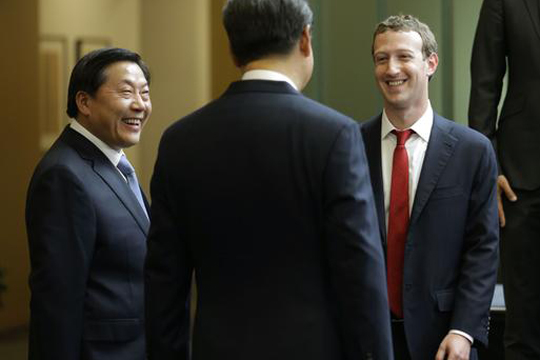BEIJING (REUTERS, NYTIMES) - The former head of China's powerful internet regulator is under investigation for suspected corruption, the ruling Communist Party said on Tuesday (Nov 21), the latest senior official to be caught up in a sweeping campaign against graft.
In a brief statement, the party's corruption-busting Central Commission for Discipline Inspection said that Lu Wei, 57, was suspected of serious discipline breaches, using a common euphemism for graft.
It provided no other details, and it was not possible to reach Lu or a representative for comment.
In a separate statement, the commission said that the investigation into Lu, the first into a senior official since the end of last month's party congress, showed the party's determination to tackle corruption and sent a strong message.
"Managing and governing the party won't rest for a moment,"it wrote, shortly after making the announcement about Lu.
"The serious and complex state of the anti-corruption struggle has not changed."
Lu worked his way up though China's official Xinhua news agency before becoming head of propaganda in the Chinese capital Beijing and then moving on to internet work in 2013.
He ran the internet regulator until June 2016, when another official took over.
Lu subsequently became a deputy propaganda minister. Lu was known for his strong defence of government controls over the internet, rejecting criticism that China's internet was too censored and saying order was a means to online freedom.
Lu defended blocking some websites and censoring online posts, saying that if the government were being too restrictive, China's online market would not be developing so rapidly.
The Chinese government has blocked sites it deems could challenge Communist Party rule or threaten stability, including popular Western sites such as Facebook and Google's main search engine and Gmail service.
In 2014, when asked why foreign social media sites such as Facebook were blocked in China, Lu denied any knowledge of the practice.
"I have never used any of these websites so I don't know if they have been shut down," he said. "Your website is on your home soil. How can I go over to your home and shut it down?"
The next year, Lu denied that China engaged in internet censorship. "It is a misuse of words if you say 'content censorship,'" Lu said.
"But no censorship does not mean there is no management."
To quell what was perceived as a freewheeling social media, Lu went after some of the country's biggest internet personalities.
At private dinners he threatened them, and on national television he scolded them.
He also limited the functions and purged many of their accounts. Yet his high profile was also a liability.
The announcement of the investigation could help clear the air before the World Internet Conference, scheduled for two weeks from now in Wuzhen, a canal town in eastern China.
Presented as a sort of Davos of the internet, the meeting was conceived as a way to show off China's new influence over the technology industry.
President Xi Jinping has waged war against deep-rooted corruption since taking office five years ago, jailing or meting out lesser punishments to hundreds of thousands of officials.



